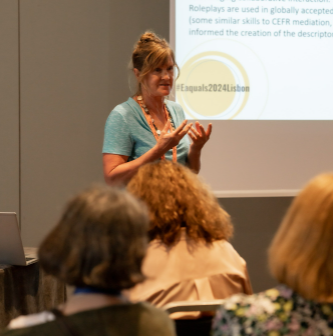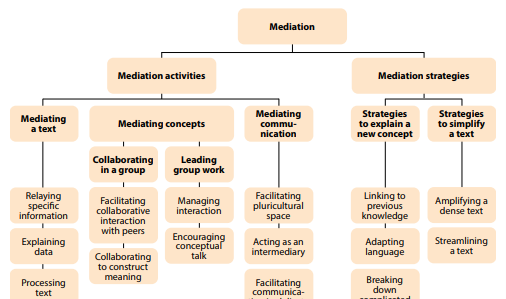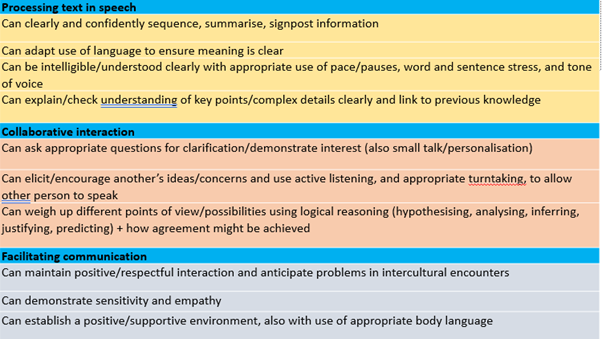
EAQUALS 2024: by Margaret Russell
Easter was a bit different this year, as I headed over to Lisbon in Portugal for the Evaluation and Accreditation of Quality Language Services (EAQUALS) Annual International Conference 2024.
My proposal to give a talk on CEFR (2020) Mediation skills had been accepted, and I was thrilled. Not only had I not been to Lisbon before, but my talk Communicating effectively: a competency framework using CEFR (2020) mediation skills stemmed from research I had been working on for the past 2 years and I had grown to really believe in its value.
What is CEFR Mediation?
CEFR mediation is a unique and innovative set of real-life communication skills where there is a heightened awareness of the other person in the interaction. Hence, skills in CEFR mediation include competences such as adapting language, intercultural awareness, and the use of soft skills such as respect and sensitivity.

The CEFR mediation skills focus on interaction as a collaborative act where there is a heightened awareness of the other person and the situational/cultural context. Using CEFR mediation skills, thoughts should be processed into meaningful, intelligible and appropriate speech. The mediation skills tend to reflect the increasing awareness of the complex socio-cultural nature of communication skills (Piccardo, North and Goodier, 2019).
My Competency Framework:
I created a competency framework using adapted mediation skills to help students, but also anyone, in any communicative situation, improve their communication skills. Figure 2 shows the Communication Skills Competency Framework .

The skills in the framework are divided into 3 sections, and there are 10 descriptors.
- Processing text in speech – focuses on the use of clear explanations using language and pronunciation which the other person can understand.
- Collaborative interaction – contains the collaborative elements of the interaction, such as the use of active listening, appropriate turntaking, and consideration of the other person’s ideas.
- Facilitating communication – is all those skills which can make communication a comfortable experience, such as the use of positivity, respect, sensitivity, empathy, and appropriate body language.
The framework is not prescriptive. No logical order is intended as it contains skills which should be present naturally throughout any interaction.
Attendance & response:
280 participants from 33 different countries across 6 continents attended the conference. My presentation room was full. It appears that many educators have become interested in CEFR mediation and it is becoming increasingly popular. What was particularly useful about my talk and framework was that it included practical ideas about how to adapt the CEFR mediation skills for a variety of uses and contexts.
I was a little nervous giving the talk, but afterwards there were lots of questions, and one attendee said “Thank you, that was mind blowing”.
The work I did preparing for the conference was definitely worth the effort 😊. I felt very proud to be representing the University of Plymouth, and overall it was a great experience.
In a world increasingly engulfed by AI, let’s hone our real-life human communication skills.
